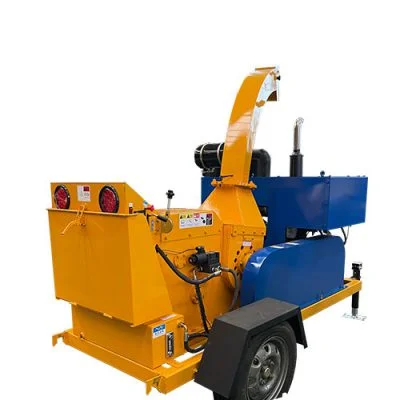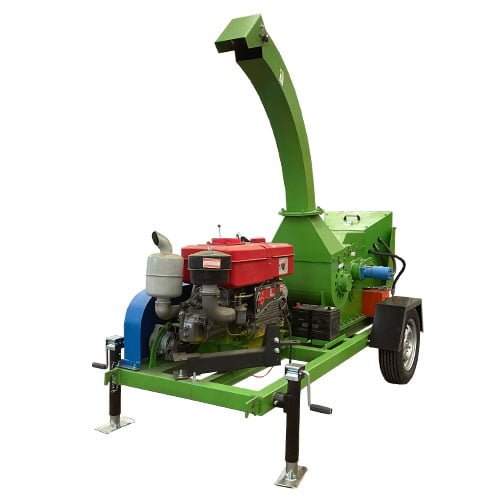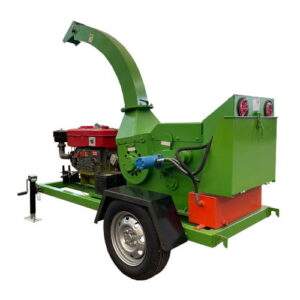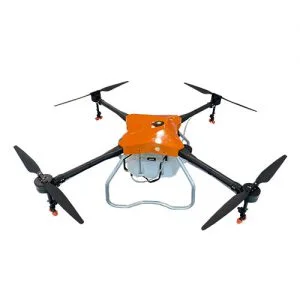How to Choose the Best Pro Wood Chipper for Your Needs
Introduction
Investing in a pro wood chipper can significantly enhance your yard maintenance and landscaping efforts, transforming large branches and debris into manageable chips. Choosing the right pro wood chipper for your needs can be challenging given the various models and features available. This comprehensive guide will help you understand the key factors to consider when selecting a pro wood chipper, ensuring you make an informed decision that meets your specific requirements.
Understanding Pro Wood Chippers

What is a Pro Wood Chipper?
A pro wood chipper is a powerful machine designed to reduce tree limbs, branches, and other yard debris into small, manageable chips. These machines are essential for professionals in landscaping, gardening, and forestry, providing a convenient way to handle large volumes of organic waste. Pro wood chippers are typically more robust and feature-rich compared to standard home-use models, offering greater efficiency and durability.
Key Features of a Pro Wood Chipper
When selecting a pro wood chipper, it’s essential to understand the key features that differentiate these machines from standard models:
- Engine Power: Pro wood chippers come with powerful engines, often ranging from 10 to 20 horsepower, enabling them to handle larger and tougher branches.
- Chipping Capacity: The capacity of a pro wood chipper determines the maximum diameter of branches it can process. Pro models typically handle branches up to 6 inches in diameter.
- Feed System: Pro wood chippers often feature automatic feed systems that pull branches into the chipping mechanism, improving efficiency and reducing manual labor.
- Blades and Cutting Mechanism: High-quality, durable blades are crucial for effective chipping. Pro models often have multiple blades or drum systems for superior performance.
- Portability: Despite their size, many pro wood chippers are designed for mobility, featuring sturdy wheels or trailers for easy transport.
Factors to Consider When Choosing a Pro Wood Chipper
Assessing Your Needs
Before selecting a pro wood chipper, it’s essential to assess your specific needs and the scope of your projects:
- Volume of Debris: Estimate the volume of yard debris you need to process regularly. This will help you determine the necessary chipping capacity and engine power.
- Type of Debris: Consider the types of materials you’ll be chipping, such as softwood, hardwood, or mixed vegetation. Some chippers are better suited for specific types of debris.
- Frequency of Use: Determine how often you’ll use the chipper. Frequent use requires a more durable and robust machine.
Evaluating Performance Specifications
When comparing different pro wood chippers, pay close attention to their performance specifications:
- Engine Power: Choose a chipper with adequate horsepower to handle the types and volumes of debris you’ll be processing.
- Chipping Capacity: Ensure the chipper can accommodate the largest branches you’ll encounter.
- Feed System: Look for automatic feed systems for increased efficiency.
- Blade Quality: High-quality, replaceable blades ensure long-lasting performance.
Comparing Different Models
To help you choose the best pro wood chipper, here is a comparison of some popular models based on key criteria:
| Model | Engine Power | Chipping Capacity | Feed System | Weight |
|---|---|---|---|---|
| Varyon HY-6130 | 32 HP | Up to 6 inches | Manual Feed | 1,763 lbs |
| Vermeer BC700XL | 25 HP | Up to 6 inches | Manual Feed | 1,700 lbs |
| Morbark Beever M8D | 57 HP | Up to 6 inches | Hydraulic Auto Feed | 2,900 lbs |
| Bandit Model 90XP | 35 HP | Up to 9 inches | Hydraulic Auto Feed | 4,560 lbs |
| Echo Bear Cat SC5540 | 22 HP | Up to 5 inches | Manual Feed | 1,700 lbs |
Considering Safety Features
Safety is paramount when operating a pro wood chipper. Look for the following safety features:
- Emergency Stop: An easily accessible emergency stop button can quickly shut down the machine in case of an emergency.
- Safety Shields: Protective shields around the chipping mechanism help prevent accidental contact with moving parts.
- Automatic Shutoff: Some models feature sensors that automatically shut off the machine if a blockage occurs.
Evaluating Durability and Maintenance
A pro wood chipper is a significant investment, so it’s essential to choose a durable machine that requires minimal maintenance:
- Build Quality: Look for models made from high-quality materials like steel for long-lasting durability.
- Maintenance Requirements: Choose a model with easily replaceable parts and a straightforward maintenance routine.
- Warranty and Support: Ensure the manufacturer offers a comprehensive warranty and reliable customer support.
Benefits of Using a Pro Wood Chipper
Increased Efficiency and Productivity
A pro wood chipper significantly enhances efficiency and productivity by quickly reducing large volumes of yard debris into manageable chips. This allows professionals to complete projects faster and more effectively, freeing up time for other tasks.
Cost-Effective Waste Management
Using a pro wood chipper can save money on waste disposal by reducing the volume of debris that needs to be transported to landfills. The resulting wood chips can be used as mulch, compost, or biofuel, providing additional cost savings and environmental benefits.
Versatility and Adaptability
Pro wood chippers are versatile machines that can handle various types of yard debris, from branches and twigs to leaves and brush. This adaptability makes them suitable for a wide range of landscaping and forestry applications.
Enhanced Safety
Modern pro wood chippers are designed with safety features that protect operators from accidents and injuries. These features, combined with proper training and operation, ensure a safer working environment.
Common Applications of Pro Wood Chippers

Landscaping and Gardening
In landscaping and gardening, pro wood chippers are used to:
- Clear Yard Debris: Efficiently process branches, twigs, and leaves.
- Create Mulch: Produce high-quality mulch for garden beds and landscaping projects.
- Prepare Compost: Generate compost materials from chipped yard waste.
Forestry and Land Management
In forestry and land management, pro wood chippers are employed to:
- Maintain Trails and Paths: Clear and maintain trails by chipping fallen branches and trees.
- Manage Forest Health: Process diseased or dead trees to prevent the spread of pests and diseases.
- Prepare Land for Development: Clear land for construction or agricultural use.
Municipal and Public Works
Municipalities and public works departments use pro wood chippers for:
- Storm Cleanup: Quickly clear fallen branches and debris after storms.
- Public Space Maintenance: Maintain parks, streets, and public areas by managing vegetation and yard waste.
- Recycling Programs: Support recycling programs by processing yard waste into reusable materials.
Conclusion
Choosing the best wood chipper for your needs involves understanding the key features, assessing your specific requirements, and comparing different models. By considering factors such as engine power, chipping capacity, safety features, and durability, you can make an informed decision that enhances your efficiency and productivity. Whether you’re a professional landscaper, a forestry worker, or a municipal employee, investing in a high-quality pro wood chipper will provide long-term benefits and improve your operational capabilities.
FAQs
What is the primary advantage of a wood chipper over a standard model?
The primary advantage of a wood chipper is its increased power, capacity, and durability. Pro models can handle larger branches and higher volumes of debris, making them suitable for professional landscaping, forestry, and municipal applications.
How often should I perform maintenance on a wood chipper?
Regular maintenance is crucial for the longevity and performance of a pro wood chipper. Follow the manufacturer’s maintenance schedule, which typically includes daily checks, weekly inspections, and periodic servicing.
Can a wood chipper handle wet or green wood?
Yes, many wood chippers are designed to handle wet or green wood. However, it’s essential to check the manufacturer’s specifications to ensure your model can process these materials without issues.
What safety precautions should I take when operating a wood chipper?
When operating a wood chipper, always wear appropriate personal protective equipment (PPE), including safety goggles, ear protection, gloves, and sturdy footwear. Ensure the machine is on a stable surface, keep bystanders at a safe distance, and follow the manufacturer’s safety guidelines.
How do I choose the right pro wood chipper for my business?
To choose the right pro wood chipper for your business, assess your specific needs, evaluate performance specifications, consider safety features, and compare different models. Ensure the chipper meets your requirements for capacity, durability, and ease of maintenance.




